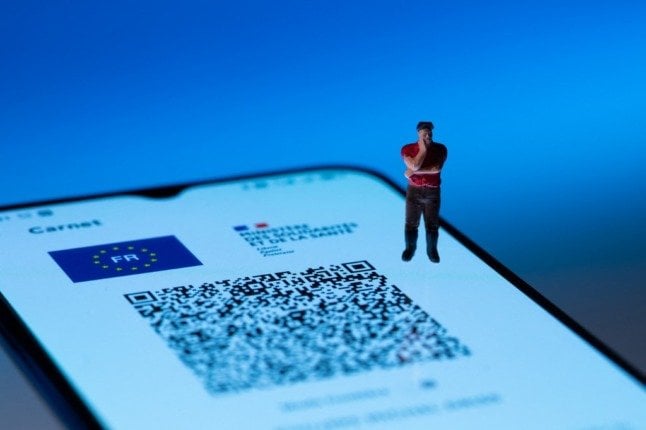Fully vaccinated visitors to France can show their own country’s vaccine certificate at the border, but once in the country they will need the pass sanitaire (health passport) to visit venues including cafés, bars, restaurants, tourist sites and long-distance train travel.
EXPLAINED How the French health pass works
For European visitors this is relatively simple – people vaccinated in the EU can use the EU digital health passport while the UK’s NHS app is compatible with the French pass – full details on how to use that here.
But for non-British or EU visitors such as Americans, Canadians, New Zealanders and Australians things are more complicated and they need to register in advance to swap their vaccination certificate for a QR code that will work with the French health passport.
This can be done online – click here for full details on how to make the swap and who is eligible.
But does the online system actually work?
Readers of The Local have provided quite mixed feedback on this – some got their code within a couple of days, others waited several weeks for it to arrive.
Added to this is confusion surrounding the issue because the system for getting a French code has changed several times. The online portal now appears to be here to stay, but is currently warning people of a wait of up to 25 days before they receive their code.
The Local advises people who have pre-planned trips to make their application one month in advance of travel. Once you have received the code there is no expiry date, and it can be used for multiple trips to France.
What if I’m still waiting?
We have received many questions from readers who are still waiting for their code by the time they arrive in France, and there are several options if you are in this situation.
Home vaccination cards – Non-EU vaccination card is not officially accepted in France, however some visitors have reported that bars and cafés have accepted their vaccination certificates from home as proof of vaccination. This seems to be particularly common for the American CDC certificate. We should stress that this is not official, so staff are not obliged to accept the card, but if you’re still waiting for your French code this is worth a try.
Pharmacy swap – before the online portal was created, swapping non-French vaccination certificates was done at pharmacies, and some still offer this service. Again, we should stress that this is not official policy, not all pharmacies offer this and they are not obliged to do so, but readers have reported that some pharmacies still do this, so if you are still waiting for your code this too is worth a try.
Testing – the health passport has options to show either a certificate of vaccination or a recent negative Covid test. So if you are still waiting for your code, the other option is to get a test. Testing is very easy to access in France, almost all pharmacies offer Covid tests which are done on a walk-in basis without the need for an appointment and in larger towns and tourist sites there are also many pop-up testing centres. The rapid-result antigen tests are valid for the health passport and for non-residents cost €29. The test result is valid for 72 hours.
READ ALSO
French vocab
Le pass sanitaire – the health passport
TousAntiCovid – the name of the French app which hosts the passport
Une attestation de vaccination – a vaccination certificate
Un code QR – a QR code (pronounced code coo aire)
Dépistage Covid/Un test Covid – Covid testing/a Covid test
Bonjour, Pouvez-vous échanger mon attestation de vaccination américaine contre un QR code pour le pass sanitaire ? – Hello, can you exchange my American vaccination certificate for a QR code for the health passport?



 Please whitelist us to continue reading.
Please whitelist us to continue reading.
Member comments